Filter by

The Boundless Present: Space and Time in the Literary Fairy Tales of Novalis …
This volume is a study in the Romantic reshaping of space and time to evoke the fantastic interior landscape and the temporal dynamics of subjective experience. Close textual analysis is coupled with frequent reference to literary and intellectual history in the reassessment of the narrative art of Novalis and Tieck. The author examines Novalis' "Hyazinth und Rosenblüte", "Atlantis", "Arion" a…
- Edition
- Ed. 1
- ISBN/ISSN
- -
- Collation
- 178
- Series Title
- UNC Studies in the Germanic Languages and Literatures, 95
- Call Number
- 909 BIR b

Vertical Readings in Dante's Comedy: Volume 1
"Vertical Readings in Danteâ s Comedy is a reappraisal of the poem by an international team of thirty-four scholars. Each vertical reading analyses three same-numbered cantos from the three canticles: Inferno i, Purgatorio i and Paradiso i; Inferno ii, Purgatorio ii and Paradiso ii; etc. Although scholars have suggested before that there are correspondences between same-numbered cantos that be…
- Edition
- -
- ISBN/ISSN
- 9781783741724
- Collation
- -
- Series Title
- -
- Call Number
- -
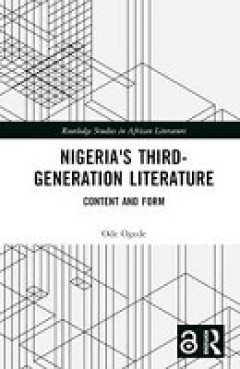
Nigeria's Third-Generation Literature: Content and form
This book considers the evolution and characteristics of Nigeria’s third-generation literature, which emerged between the late 1980s and the early 1990s and is marked by expressive modes and concerns distinctly different from those of the preceding era. The creative writing of this period reflects new sensibilities and anxieties about Nigeria’s changing fortunes in the post-colonial era. Th…
- Edition
- Ed. 1
- ISBN/ISSN
- 9781032268422, 9781032268439
- Collation
- -
- Series Title
- -
- Call Number
- 909 OGE n
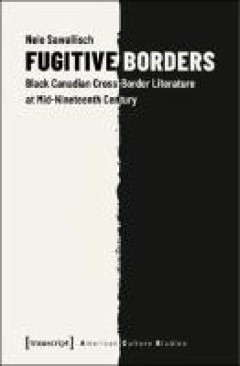
Fugitive Borders: Black Canadian Cross-Border Literature at Mid-Nineteenth Ce…
Fugitive Borders explores a new archive of 19th-century autobiographical writing by black authors in North America. For that purpose, Nele Sawallisch examines four different texts written by formerly enslaved men in the 1850s that emerged in or around the historical region of Canada West (now known as Ontario) and that defy the genre conventions of the classic slave narrative. Instead, these te…
- Edition
- -
- ISBN/ISSN
- 9783839445020
- Collation
- -
- Series Title
- -
- Call Number
- -
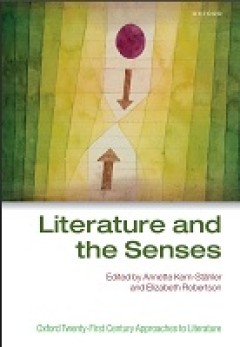
Literature and the Senses
Literature and the Senses critically probes the role of literature in capturing and scrutinizing sensory perception. Organized around the five traditional senses, followed by a section on multisensoriality, the collection facilitates a dialogue between scholars working on literature written from the Middle Ages to the present day. The contributors engage with a variety of theorists from Maurice…
- Edition
- -
- ISBN/ISSN
- 9780192843777
- Collation
- -
- Series Title
- -
- Call Number
- -

Christoph Martin Wieland as the Originator of Modern Travesty in German Liter…
In this study the extent to which Wieland contributed to the literary genre of the travesty is established, the poet's approach to his sources as well as the nature and duality of his innovations are investigated, and the level and distribution of his travesties in relationship to the sum total of his literary work in general is appraised.
- Edition
- -
- ISBN/ISSN
- -
- Collation
- -
- Series Title
- -
- Call Number
- -

The Unfinished Art of Theater Avant-Garde Intellectuals in Mexico and Brazil
The avant-garde posits the possibility of total rupture with the past. This book pulls back on this futuristic impulse by showing how theater became a key site for artists on the edge of capitalism to reconfigure the role of the aesthetic between 1917 and 1934. The book argues that this “unfinished art”—because of its weakness as a representative institution in Mexico and Brazil, where th…
- Edition
- -
- ISBN/ISSN
- 9780810137400
- Collation
- -
- Series Title
- -
- Call Number
- -

Chapter 16 George Orwell’s Dystopian Socialism
In this volume, John Farrell shows that political utopias—societies with laws and customs designed to short-circuit the foibles of human nature for the benefit of our collective existence—have a perennial opponent, the honor-based culture of aristocracy that dominated most of the world from ancient times into early modernity and whose status-based competitive psychology persists to the pres…
- Edition
- -
- ISBN/ISSN
- 9781032431574
- Collation
- 22
- Series Title
- -
- Call Number
- 900 THE f
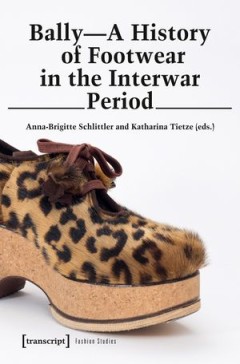
Bally - A History of Footwear in the Interwar Period
Carl Franz Bally founded a shoe factory in Switzerland in 1851. Within decades, the Bally name had achieved worldwide recognition for its high-quality footwear. The history of modern footwear can be traced through the lens of Bally's corporate evolution. This book brings together the results of research on such topics as the economic importance of fashion, Bally's fortunes in the US, the career…
- Edition
- -
- ISBN/ISSN
- 9783839457382
- Collation
- -
- Series Title
- -
- Call Number
- 900 BAL b
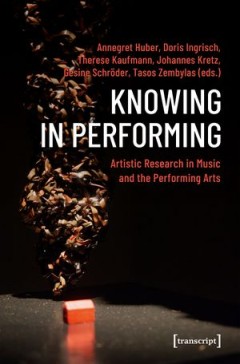
Knowing in Performing: Artistic Research in Music and the Performing Arts
How can performing be transformed into cognition? Knowing in Performing describes dynamic processes of artistic knowledge production in music and the performing arts. Knowing refers to how processual, embodied, and tacit knowledge can be developed from performative practices in music, dance, theatre, and film. By exploring the field of artistic research as a constantly transforming space for pa…
- Edition
- 1
- ISBN/ISSN
- 9783839452875
- Collation
- -
- Series Title
- -
- Call Number
- 792 KNO k
 Computer Science, Information & General Works
Computer Science, Information & General Works  Philosophy & Psychology
Philosophy & Psychology  Religion
Religion  Social Sciences
Social Sciences  Language
Language  Pure Science
Pure Science  Applied Sciences
Applied Sciences  Art & Recreation
Art & Recreation  Literature
Literature  History & Geography
History & Geography